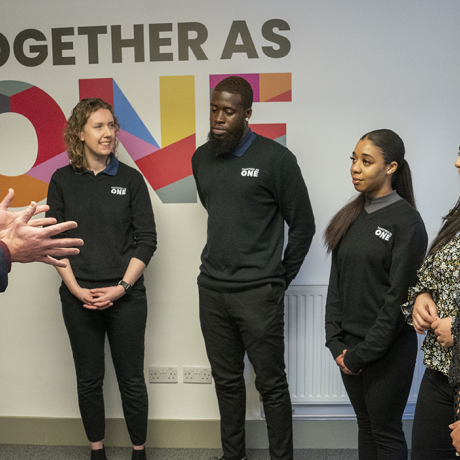Together as One (until recently known as Aik Saath) is a Slough-based charity dedicated to working with young people to create positive social change in the community
The Prince of Wales has visited the charity as it celebrates its 25th anniversary this February. Aik Saath, which means ‘Together As One’ in Hindi, Punjabi and Urdu, was founded in response to incidents of gang violence between young people from Asian backgrounds in Slough in the late 1990s. Young people were empowered to help efforts to resolve community tensions and they have been leading the charity’s work ever since.
This includes training in youth centres and schools to teach skills around conflict resolution and how to enhance community cohesion. The organisation’s work has also evolved to meet the needs of Slough’s diverse community, which has led to the development of support for young carers, projects focused on mental health, and campaigns and creative projects designed to strengthen relationships in the community and tackle issues such as bullying, knife crime and racism.
During the visit, His Royal Highness learnt more about the breadth of work that Together as One undertakes in Slough, meeting some of the current staff - some of whom are former volunteers - who help to deliver the charity’s work. They discussed how they help young people resolve conflict, challenge prejudice and contribute to a mentally healthy, mutually supportive society.
The Prince then took part in a lesson with the charity’s Global Grub cooking programme. The programme teaches young people how to cook healthy, nutritious food while coping with the current challenges posed by the increasing cost of living.
His Royal Highness was joined by young carers to hear about the work they do looking after parents and siblings and how they are supported by Together as One as they take part in the cookery session.
Before departing, The Prince met group of young volunteers who have led a broad range of projects in their community, including providing clothes and meals for people experiencing homelessness, campaigning against violence against women and girls, and training their peers in schools to resolve their conflicts nonviolently.
